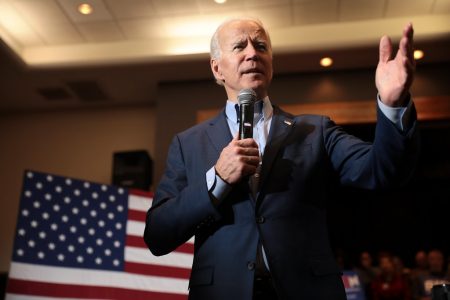FAQ: All about Measure A on Sacramento’s ballot
Steinberg, Valenzuela offer opposing views of controversial “strong mayor” initiative
Samaha Samy, Ian Ratliff, and Dominic Vitiello
October 22, 2020
The Sacramento Mayoral Accountability and Community Equity Act of 2020, also known as Measure A or the “strong mayor” proposal, if passed would reform Sacramento’s governing system from a council-manager government to a mayor-council government.
The State Hornet conducted interviews with Sacramento Mayor Darrell Steinberg, Sacramento City Council Member-Elect Katie Valenzuela and Sacramento State political science professor Wesley Hussey to learn more about Measure A.
Question: What powers does Measure A give the Sacramento mayor?
Answer: Measure A gives the mayor the power to appoint the city manager, and remove them from office with or without cause. Other powers include the ability to veto ordinances and propose a budget to the city council. Measure A would also remove the mayor’s vote in the city council according to the Measure A text.
Q: How does Measure A change Sacramento’s city council?
A: Measure A would create the positions of city council president and vice president filled by elected members of the city council. This measure will also add a new district and add a council member in the city council. That district would be mapped later on. The city council would gain authority over land-use decisions and lose the power to appoint a city manager, but would still be able to approve or deny the mayor appointee. The city council would then need six votes to override the mayor’s veto on any ordinances, according to the proposed measure text.
“It is a balanced plan, the mayor does not have a concentrated power,” Steinberg said. “In fact, the city council has even more power than it has now because it will have plenty of authority over land-use decisions, it will write the budget separate from the mayor.”
Q: What is the difference between a council-manager government and a mayor-council government?
A: Sacramento’s current governing system is a council-manager government, also known as the “weak mayor” system. This means that the mayor serves as an equal with the city council members, and executive functions of the city are performed by a city manager, according to the California Senate Governance and Finance Committee’s City Fact Sheet from Sept. 2016.
In a mayor-council government, also known as the “strong mayor” system, the mayor is not a member of the city legislative branch and is the head of the city executive branch. The City Fact Sheet states that, “[the] mayor may also be responsible for more administrative and management duties. Cities can elect other city officers, such as an auditor or attorney.”
“The weak mayor system is very much a hybrid of a strong mayor or like a presidential system and the kind of classic California council-manager system where there is no mayor at all,” Hussey said. “It’s just city council members and then there is a very powerful appointed city manager. Sacramento still has a powerful appointed manager, and the mayor is just one of nine votes in city council that can hire or fire the city manager.”
Hussey said the mayor-council government would remove the mayor from the legislative branch, give them more power over the budget and allow them to veto legislations and ordinances.
Q: When was the last time a strong mayor system was proposed?
A: In 2014, Kevin Johnson, the former mayor of Sacramento, proposed the strong mayor system, which 53% of the voters voted “No” on according to the Sacramento County website.
Q: Why is the strong mayor system proposed again in 2020? What is the purpose of the measure?
A: “It has been six years, that is a significant difference of time,” Steinberg said. “We are living in very different times. The people of Sacramento are rightfully demanding that our city government be much more responsive to the issues of equity, of economic equity specifically, and of race, of gender and of sexual orientation.”
According to the Measure A text, the purpose of this measure is to “establish greater accountability and stronger checks and balances, to better ensure that the agenda, budget, leadership, and day-to-day management of the City of Sacramento are directly informed by, and aligned with, the will of the voters and effectively communicated to the residents of Sacramento by their elected representatives.”
“It also will further our ability to invest real resources in our neighborhoods, in young people, in what I call inclusive economic development including affordable housing, and workforce development,” Steinberg said. “The city has traditionally defined its role as providing goods and services to people and that will remain the city’s number one priority, but we must have room and focus on our neighborhoods on people and including an inclusive tax base.”
Q: Who supports Measure A, and why?
A: The argument in favor of this measure is signed by City Council Member Angelique Ashby, Co-founder of Build. Black., Chet Hewitt, Executive Board Member of Sacramento’s Sierra Building and Construction Trades Council Cody Bik, Chair of the Latino Economic Council of Sacramento Jim Gonzalez and President & CEO, Greater Sacramento Urban League Cassandra Jennings.
Mayor Steinberg has also voiced his support of Measure A.
“In elevating the importance of the job of mayor in the city, the community will step up and elect the mayor reflects the values of the city because the voters are moving towards a more progressive point of view,” Steinberg said.
Steinberg said that this measure will allow a mayor to introduce a budget consistent with what people elected him or her to lead on and to lead with.
“The city striving towards genuine equity and Measure A, makes equity a fundamental pillar of everything and every major decision that we make,” Steinberg said. “With the accountable mayor and an accountable city council, we have a much better chance of a consistent equity agenda in the city. The current system is not broken, but it can be much better.”
Q: Who opposes Measure A, and why?
A: City Council Member-Elect Valenzuela said she opposes Measure A because it is “not the right form of government for Sacramento.”
“I think it’s failure of leadership, not failure of structure,” Valenzuela said. “When you go to the protests happening in Sacramento, you hear very clearly folks want more of a voice, not less. The council held a meeting where all of the mayor’s proposals were adopted on July 1, so he is already a very strong mayor.”
According to Valenzuela, the strong mayor proposal is something that benefits the people who have the power, privilege and resources to access one person who will govern over 500,000 people rather than having to access nine people to get decisions in their favor.
“That would not help people with less resources, would not help people of color gain better equity,” Valenzuela said. “It will help powerful people maintain their power.”
The argument against the measure is signed by Vice Mayor of Sacramento Jeff Harris, Councilmember Larry Carr, Councilmember Allen W. Warren, President of the League of Women Voters Suzi Bakker and Former Mayor of Sacramento Heather Fargo.
Q: What would happen if the mayor uses his new veto power on the budget and the city council disagrees with the mayor? How would the city council override the mayor’s veto?
A: Hussley said that a separate branch of government for a city could create a similar gridlock that exists between the executive and legislative branches in our state or in our federal situation.
“I think the only thing that would be different in this case is the city council would be in a desperate situation to pass a budget because of all the employees not getting paid and the city not being able to pay for firefighters and police services, and these are the things that the citizens would rally up and say we have to have these things now,” Hussey said. “So the issue would be whether the legislature votes for the mayor’s budget or not and if they vote down the budget they have to take a super majority to do that.”
Steinberg added his own explanation of what would happen if the city council disagrees with the mayor’s budget.
“The city will never be shut down, that will never happen,” Steinberg said. “They will always produce a budget, it requires a majority of the city council. If the city council disagrees with the mayor, they can override the mayor veto with six votes.”
Valenzuela pointed out that when Steinberg was the president of the Senate of California, he did not override the governor’s veto.
“It hasn’t been overridden because the power dynamic is too extreme, you know if you override the governor on something he wants, he could veto other bills you do not have a veto-proof majority on,” Valenzuela said.
“If you look at the other places that do this, they do not often override because the power dynamic is not balanced,” Valenzuela said. “He could make promises to anybody he wants to secure the votes to go his way. If I have something important to my district, it is no longer good enough to have a majority of five, but I need six votes just to make sure the mayor cannot veto it, and that is not okay.”
Q: Does the size of Sacramento determine if a strong mayor system works?
According to Hussey, the larger the city, the harder it is to have a weak mayor or no mayor system.
“Sacramento has grown considerably in the last 20 years, and we are moving from a medium-sized city to a large-sized city, and you definitely see some argument to have a different political system, with a large city structure, but if the overwhelming people in Sacramento are happy with the current system, then that should be the system,” Hussey said.
The measure states in its findings that, “The city’s current governance system was established 100 years ago for a far smaller, less diverse, and less complex city.”








































































































































